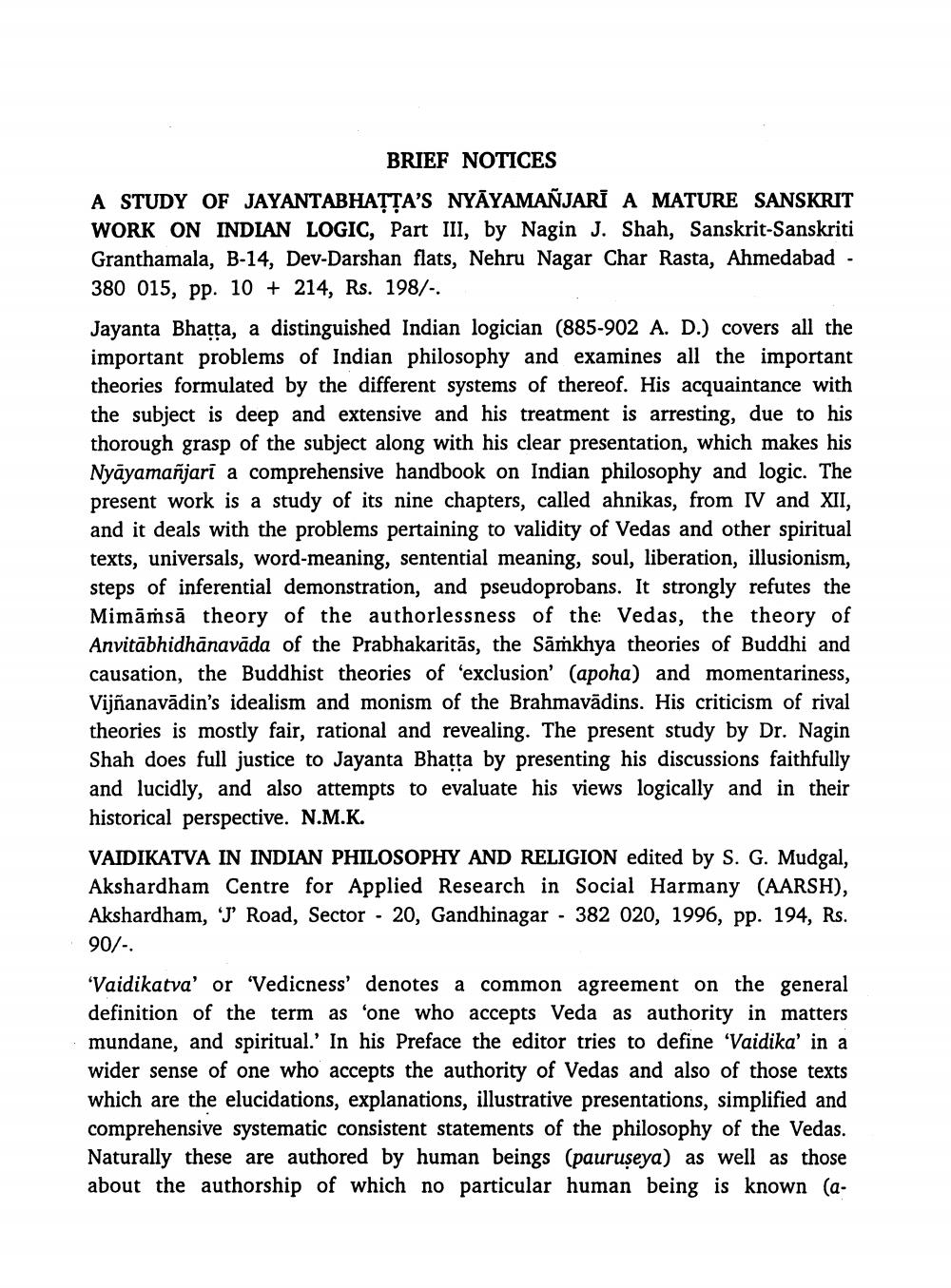________________
BRIEF NOTICES A STUDY OF JAYANTABHATTA'S NYĀYAMANJARĪ A MATURE SANSKRIT WORK ON INDIAN LOGIC, Part III, by Nagin J. Shah, Sanskrit-Sanskriti Granthamala, B-14, Dev-Darshan flats, Nehru Nagar Char Rasta, Ahmedabad - 380 015, pp. 10 + 214, Rs. 198/-. Jayanta Bhatta, a distinguished Indian logician (885-902 A. D.) covers all the important problems of Indian philosophy and examines all the important theories formulated by the different systems of thereof. His acquaintance with the subject is deep and extensive and his treatment is arresting, due to his thorough grasp of the subject along with his clear presentation, which makes his Nyāyamañjarī a comprehensive handbook on Indian philosophy and logic. The present work is a study of its nine chapters, called ahnikas, from IV and XII, and it deals with the problems pertaining to validity of Vedas and other spiritual texts, universals, word-meaning, sentential meaning, soul, liberation, illusionism, steps of inferential demonstration, and pseudoprobans. It strongly refutes the Mimāṁsā theory of the authorlessness of the Vedas, the theory of Anvitābhidhānavāda of the Prabhakaritās, the Samkhya theories of Buddhi and causation, the Buddhist theories of 'exclusion' (apoha) and momentariness, Vijñanavādin's idealism and monism of the Brahmavādins. His criticism of rival theories is mostly fair, rational and revealing. The present study by Dr. Nagin Shah does full justice to Jayanta Bhatta by presenting his discussions faithfully and lucidly, and also attempts to evaluate his views logically and in their historical perspective. N.M.K. VAIDIKATVA IN INDIAN PHILOSOPHY AND RELIGION edited by S. G. Mudgal, Akshardham Centre for Applied Research in Social Harmany (AARSH), Akshardham, 'J' Road, Sector - 20, Gandhinagar - 382 020, 1996, pp. 194, Rs. 90/
'Vaidikatva' or 'Vedicness' denotes a common agreement on the general definition of the term as 'one who accepts Veda as authority in matters mundane, and spiritual.' In his Preface the editor tries to define 'Vaidika' in a wider sense of one who accepts the authority of Vedas and also of those texts which are the elucidations, explanations, illustrative presentations, simplified and comprehensive systematic consistent statements of the philosophy of the Vedas. Naturally these are authored by human beings (pauruseya) as well as those about the authorship of which no particular human being is known (a




